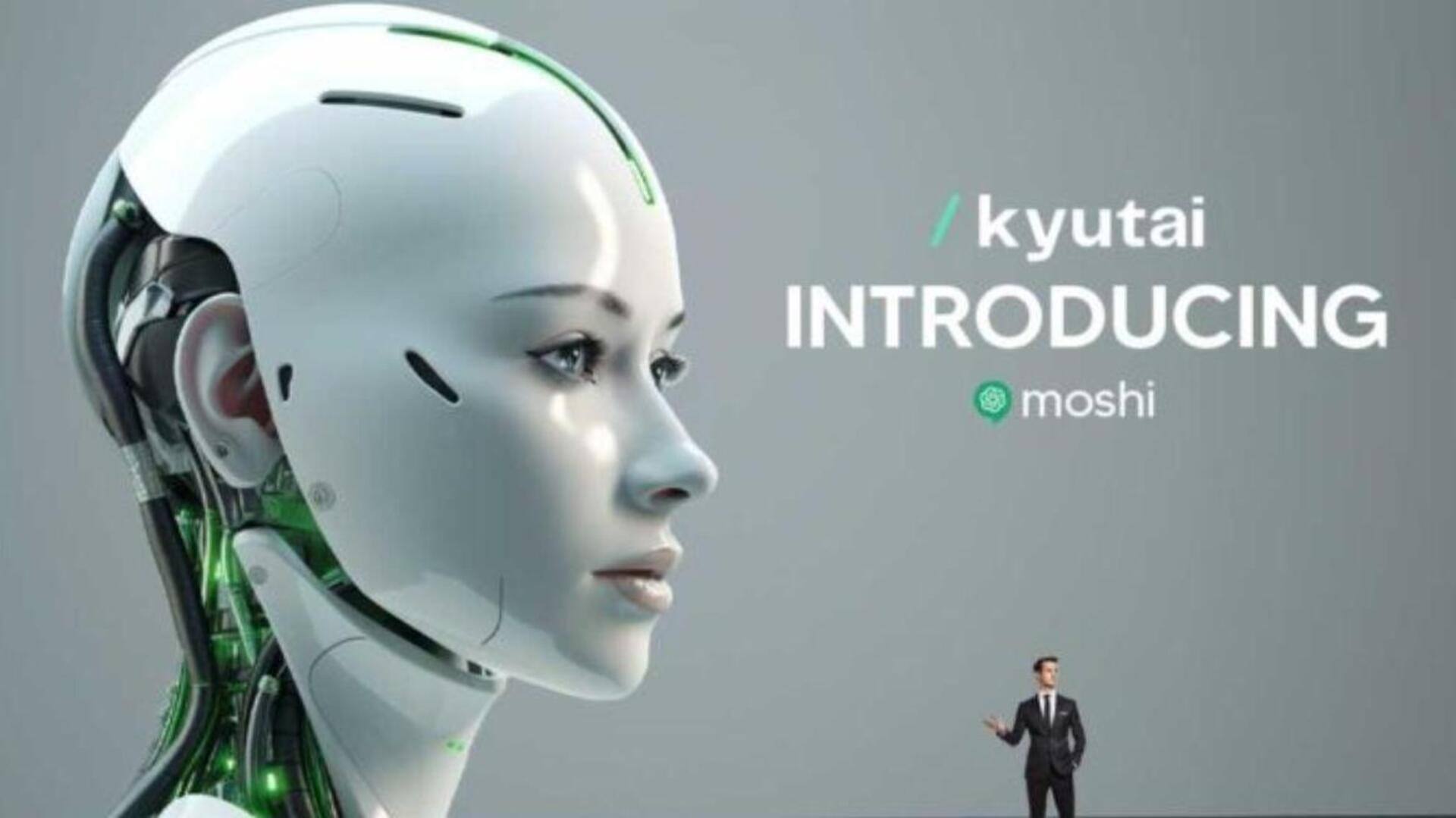
ChatGPT rival goes beyond text: Moshi can understand your emotions
What's the story
Taking on OpenAI's popular AI chatbot ChatGPT, French AI company Kyutai has introduced Moshi, an advanced AI voice assistant designed for lifelike conversations. Unlike its competitors, Moshi can speak in various accents and employs 70 different emotional and speaking styles. It can also understand the tone of your voice as you speak to it. It also has the unique ability to process two audio streams simultaneously, allowing it to listen and respond at the same time.
Development
The development and unique features of Moshi
The creation of Moshi involved a meticulous process, using over 100,000 synthetic dialogs generated through Text-to-Speech (TTS) technology. To ensure natural and engaging responses, Kyutai collaborated with a professional voice actor. "This new type of technology makes it possible for the first time to communicate in a smooth, natural and expressive way with an AI," the company stated. A demo version of Moshi is currently available for users to test, with interactions limited to five minutes.
Future plans
Kyutai's future plans for Moshi and AI development
Kyutai plans to make Moshi an open-source project, promoting innovation and addressing ethical concerns in AI development. The company also intends to integrate advanced features into Moshi, such as AI audio identification, watermarking, and signature tracking systems. These additions aim to ensure accountability and traceability of AI-generated audio. With these advancements, Moshi is poised to redefine the standards for AI voice assistants.
Launch impact
Moshi's launch: A timely alternative for AI voice interactions
Moshi's introduction offers a timely alternative for those keen to explore voice interactions with AI. Its advanced features and lifelike responses set it apart from other AI voice assistants. If Moshi gains traction, it could potentially serve as a catalyst for other voice-enabled AI assistants and accelerate the adoption of large language models in existing systems like Alexa.